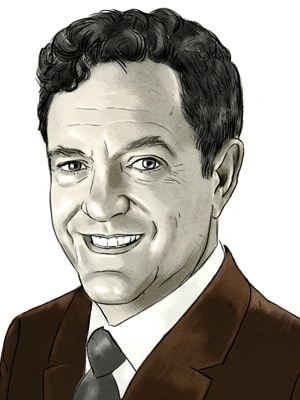
Rich Karlgaard: Team geniuses-jerks or angels?
There are some who get away with bad behaviour. But is it worth it?
Business was originated to produce happiness, not pile up millions.” So wrote Forbes founder BC Forbes in the magazine’s premiere issue, almost 98 years ago. BC was a walking encyclopedia of business wisdom. “The man who has won millions at the cost of his conscience is a failure.” “The bargain that yields mutual satisfaction is the only one that is apt to be repeated.” And not to be forgotten: “Jealousy... is a mental cancer.”
BC believed good people would win in the end—most of the time. And if they didn’t win after giving it their all, the noble strivers had nothing to be ashamed of. Do BC’s homilies still hold true? Should entrepreneurs, owners and managers endeavour to be good people?
There’s reason to doubt. The super success of two recent business titans makes you wonder. The two are Steve Jobs and Elon Musk—bright, shrewd and occasionally nasty leaders. There’s much to study and emulate in this pair, most of it good. But both have documented histories of vicious verbal humiliation of others. According to Ashlee Vance’s Elon Musk: Tesla, SpaceX, and the Quest for a Fantastic Future, when Musk’s executive assistant of more than a decade asked for a raise, he told her to take two weeks off and he’d gauge whether her job was worth the requested compensation. When she returned, he fired her.
A trend I see today is that many entrepreneurs think nasty behaviour is not only excusable in business but also required for success. Jobs and Musk prove it—don’t they?
Actually, no. Steve Jobs’ jerky behaviour got him in more trouble than good behaviour would have. A bad habit of Jobs’ from his early tenure at Apple was to steal credit for successful projects—most people, even today, think he started the Macintosh project—and to blame others for the losers. This flaw didn’t escape Apple’s board: It voted to side with CEO John Sculley when the showdown between the two came. The Jobs who came back to Apple in 1997 no longer sabotaged his own teams. He built enduringly great teams, in part by spreading credit.
Still, even the mature Jobs got away with behaviour that would sink other CEOs. He supported a stock options backdating scheme that was illegal and landed another CEO in jail.
Travis Kalanick, founder and CEO of Uber, has joked about his misogynistic nickname for his company. A direct report of Kalanick’s had to apologise to Sarah Lacy, a critical female reporter, for spoken threats made against her. And Uber stands accused of flooding rival Lyft with fake service calls.
Are the dirtbags winning? Uber’s market cap of $40 billion sounds a lot like winning. Lyft’s market value is one-sixteenth the size.
Produce happiness
But here’s the thing: If you decide you want to behave this way, make sure you’re the company founder, you’re the smartest person in the room, you outwork everyone and that people love your products. This is why Elon Musk can act like a jerk and get away with it.
The number of individuals who check all those boxes is minuscule. Thomas Edison. Henry Ford. Steve Jobs. Elon Musk. Jeff Bezos. Travis Kalanick. They get to be jerks more than others do. Is that fair? Who’s to say?
For the vast majority of us I would say: Don’t go there. Being a jerk isn’t worth it. It will damage your heart and soul. It will hurt, not help, your teams. It will lead more often to poverty than to riches. Instead, follow BC Forbes’ advice: Produce happiness.
(Rich Karlgaard is the publisher at Forbes)
Tiny Teams are Best
The world’s finest work is done by committed teams of 2 to 12 people. Learn why this is so in my and co-author Michael S Malone’s new book, Team Genius: The New Science of High-Performing Organizations (HarperBusiness, $27.99).
(This story appears in the 30 November, -0001 issue of Forbes India. To visit our Archives, click here.)






